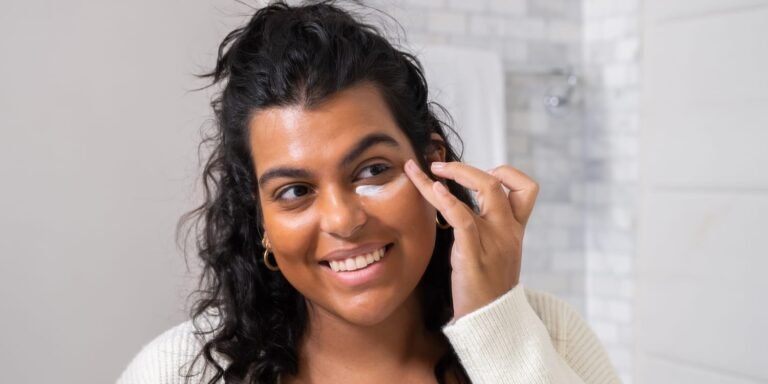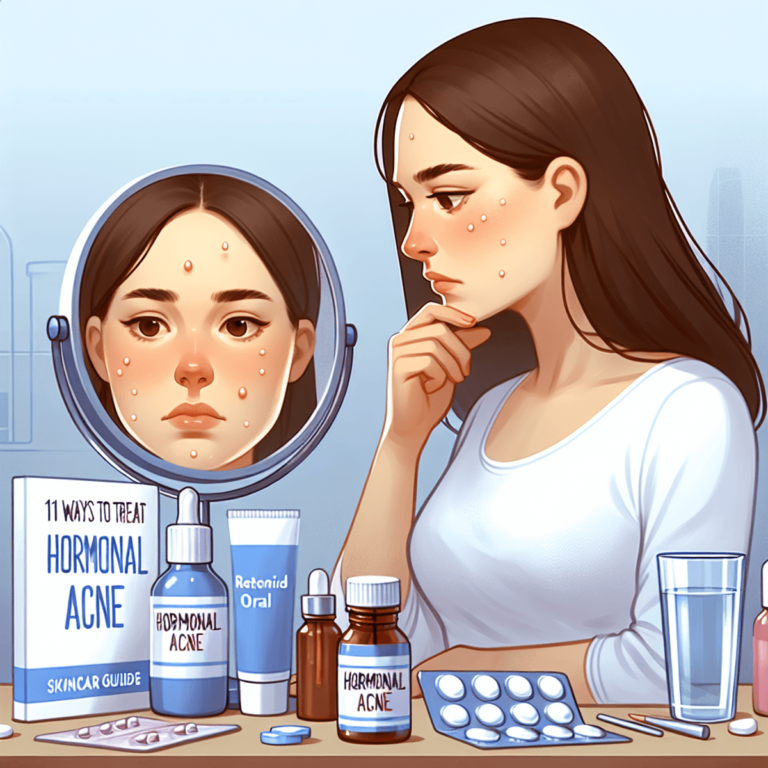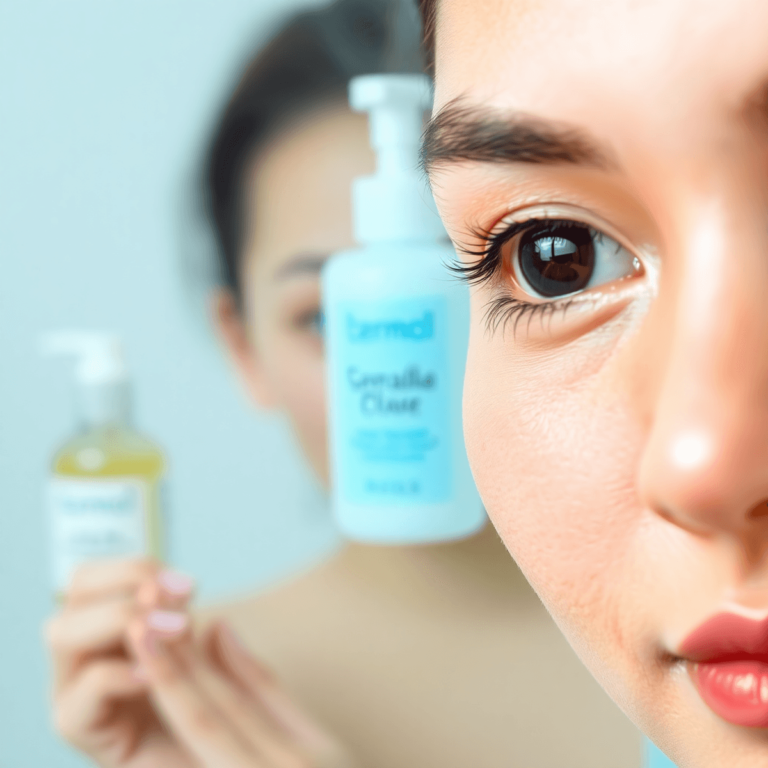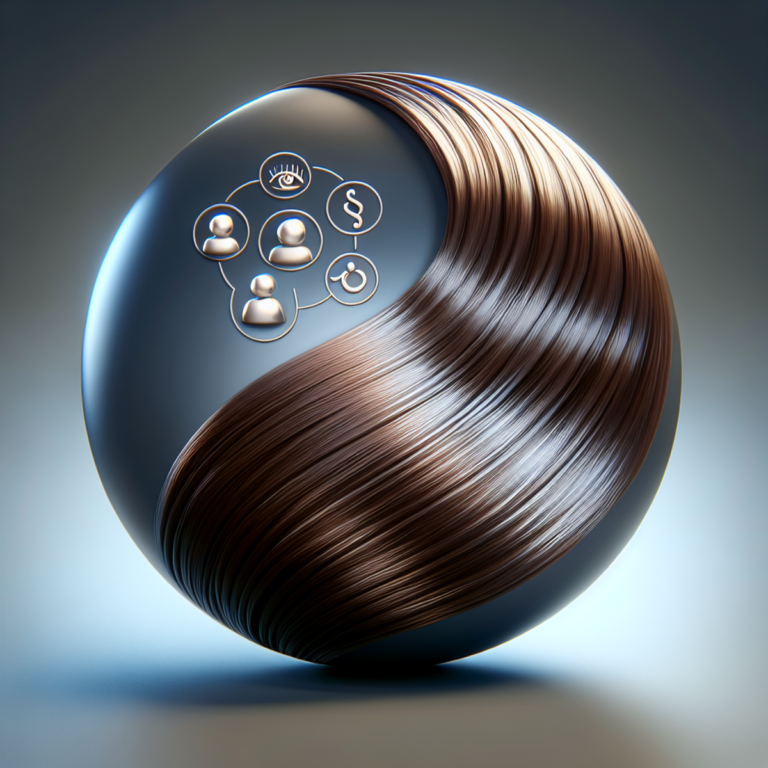How To Get Rid of Stress Acne: Treatment and Prevention
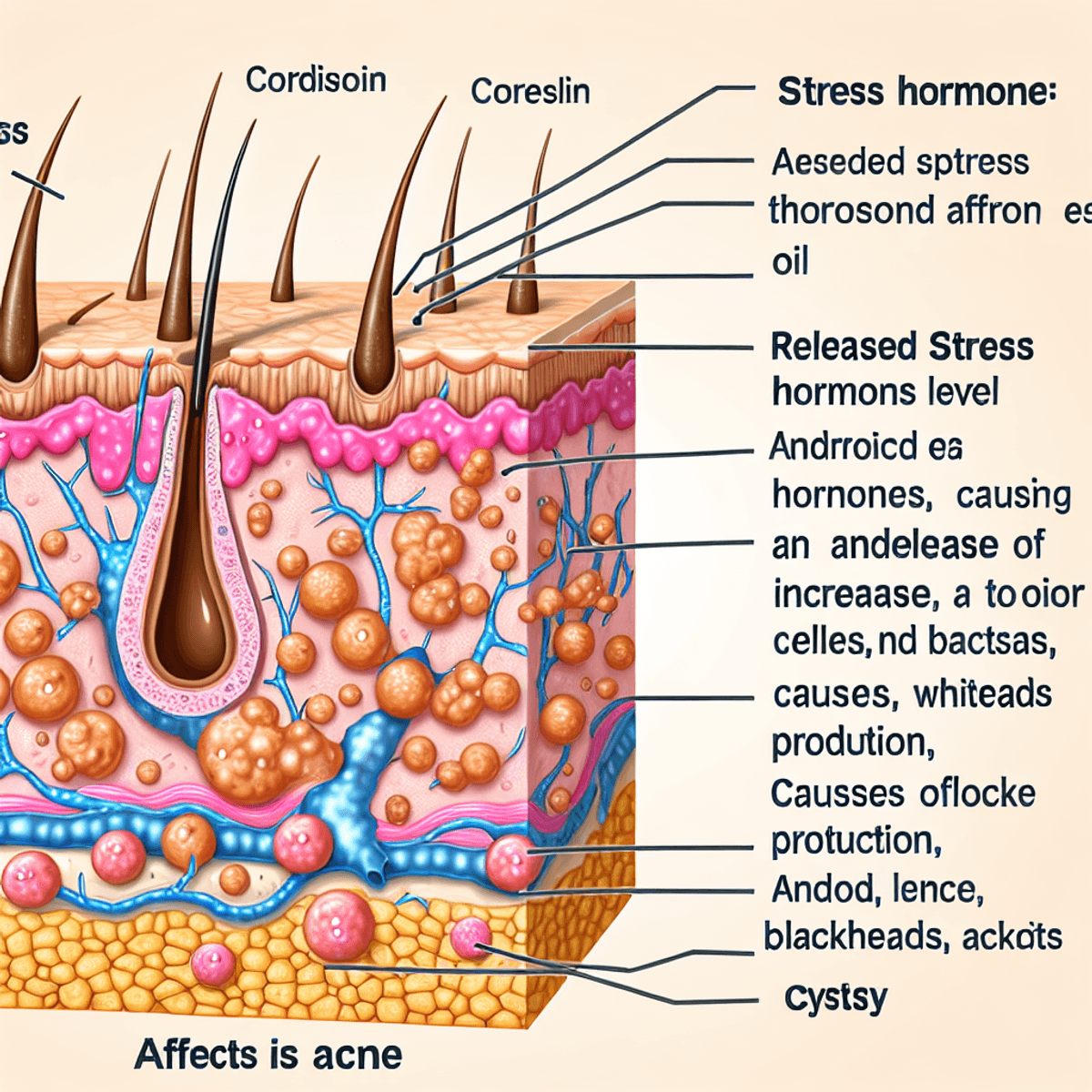
Introduction
Stress acne refers to acne flare-ups triggered by psychological stressors, affecting individuals with acne-prone skin. The relationship between stress and skin health is intricate. Stress can worsen existing acne conditions in 50-80% of those predisposed to breakouts.
How Stress Affects the Skin
Here are some ways in which stress affects the skin:
- Hormonal Changes: Stress causes the body to release hormones like cortisol and androgens, which can lead to increased oil production from the glands.
- Clogged Pores: When there is excess oil on the skin combined with dead skin cells, it creates an environment for bacteria to thrive, resulting in various types of acne lesions.
- Types of Lesions: Common types of lesions caused by stress-induced acne include whiteheads, blackheads, and cysts.
Understanding how stress impacts your skin is essential for effective treatment and prevention. By knowing how psychological factors can influence your acne, you can take proactive steps towards achieving clearer skin. This knowledge empowers you to explore solutions on how to get rid of pimples and maintain a healthier complexion even during stressful times.
Understanding the Relationship Between Stress and Acne
Stress can cause hormonal changes in your body, which can affect your skin. When you’re stressed, your adrenal glands produce more cortisol, known as the “stress hormone.” Higher levels of cortisol can lead to increased oil production in the sebaceous glands, contributing to acne development.
How Stress Affects Hormone Levels
In addition to cortisol, stress can also increase the production of androgens—hormones that regulate sebum production. This rise in both cortisol and androgens creates an environment that promotes acne breakouts. The excess oil combined with dead skin cells and bacteria can clog pores, resulting in various types of acne lesions:
- Whiteheads: Closed clogged pores that appear as small white bumps.
- Blackheads: Open clogged pores that turn dark due to oxidation.
- Papules: Small, red, inflamed bumps that may be tender to touch.
- Pustules: Similar to papules but filled with pus, presenting a yellowish appearance.
- Cysts: Deep, painful lesions filled with pus that can lead to scarring.
How Stressors Impact Breakouts
Work pressure or emotional distress can worsen these hormonal changes. You might notice more breakouts during particularly stressful times like exams, job transitions, or personal crises. These stressors not only affect your mental state but also show up physically on your skin.
Understanding this connection is important for effective treatment. You may be looking for ways to get rid of pimples on your face or remove pimple marks. It’s essential to address underlying stressors along with topical solutions for long-term management.
Strategies for Managing Stress and Acne
Consider incorporating practices such as mindfulness or yoga into your routine. These activities can significantly lower cortisol levels and reduce the impact of stress on your skin. Additionally, maintaining a balanced skincare regimen specifically designed for acne-prone skin will support your efforts.
If you’re dealing with back pimples or seeking ways to eliminate pimple marks, remember that consistency is key. Regular cleansing and moisturizing will help keep your skin healthy while effectively targeting breakouts.
The link between stress and acne requires a holistic approach that combines skincare, lifestyle changes, and stress management techniques for optimal results. By recognizing the signs triggered by stressors and implementing these strategies, you can achieve clearer skin while nurturing your mental well-being.
How to Treat Stress-Induced Breakouts Effectively
Stress acne requires a strategic approach to treatment. Understanding your options can empower you to take control of your skin’s health. Here are the main strategies for treating stress-induced breakouts:
1. Topical Treatments: The First Line of Defense Against Stress Acne
Topical treatments are often the first step in managing stress acne. These products target the surface of the skin, helping to reduce inflammation and prevent clogged pores. Here’s a closer look at some common topical treatments:
- Benzoyl Peroxide: This powerful antibacterial agent works by killing acne-causing bacteria and reducing oil production. It is particularly effective for inflammatory acne like pustules and cysts but can cause dryness, peeling, and irritation if used excessively.
- Salicylic Acid: A beta hydroxy acid (BHA) that penetrates deep into pores to exfoliate dead skin cells. Salicylic acid helps prevent clogged pores and is beneficial for both blackheads and whiteheads. Users may experience slight stinging or redness, but these effects usually diminish with continued use.
- Retinoids: Derived from vitamin A, retinoids promote cell turnover and prevent clogged pores. They are effective for both treating existing acne and preventing future breakouts while also helping fade post-acne marks over time. Initial irritation, dryness, or peeling are common as your skin adjusts.
- Antibiotic Creams (e.g., Clindamycin): These topical antibiotics reduce bacteria on the skin’s surface while decreasing inflammation. Ideal for inflammatory acne forms, they work best when combined with other treatments like benzoyl peroxide but prolonged use can lead to antibiotic resistance; hence, it should be utilized under medical supervision.
When considering how to get rid of tiny bumps on the face or how to stop pimples coming on the face, these topical treatments can serve as a solid foundation. Establishing a consistent routine with these products can significantly impact your skin health.
2. Oral Medications: When Topicals Aren’t Enough to Combat Severe Stress Acne Flare-Ups
In cases where topical treatments alone do not yield satisfactory results, oral medications may be necessary.
- Oral Antibiotics: Medications like doxycycline or minocycline help reduce bacteria and inflammation from within by targeting systemic inflammation and bacterial growth; they can provide relief from severe breakouts but long-term use carries risks of antibiotic resistance; thus, these should be used carefully under a dermatologist’s guidance.
- Hormonal Therapies: Birth control pills or anti-androgens like spironolactone help regulate hormones that contribute to acne by lowering androgen levels in the body, subsequently reducing oil production from sebaceous glands but not suitable for everyone; discuss potential risks with your healthcare provider.
- Corticosteroids: Short courses of corticosteroids can quickly reduce inflammation during severe flare-ups; they may provide rapid relief but should not be relied upon long-term due to potential side effects such as thinning skin.
Addressing how to get rid of pimples fast might involve combining these oral medications with topical treatments for optimal effect. Always consult a healthcare professional before starting any new medication regimen.
Building Your Skincare Routine Essentials
A well-rounded skincare routine is essential in managing breakouts effectively. Consider incorporating the following steps:
- Gentle Cleansing: Use a mild cleanser twice daily to remove dirt without stripping natural oils.
- Moisturizing: Opt for non-comedogenic moisturizers that hydrate without clogging pores.
- Exfoliation: Regularly exfoliate using gentle scrubs or chemical exfoliants (like AHAs/BHAs) once or twice a week to maintain clear skin.
- Sunscreen Application: Protect your skin daily with a broad-spectrum sunscreen; this prevents further irritation caused by sun exposure.
Understanding how to remove pimple scars naturally involves patience and consistency in your routine. Incorporating products designed for scar reduction can aid healing over time.
Maintaining an awareness of what triggers your stress-related breakouts is vital in crafting an effective treatment plan. Adjustments may be necessary based on your skin’s response; monitoring changes will guide you in making informed decisions about your skincare regime.
As you explore various treatment options for stress-induced acne, remember that individual responses vary widely. Use this knowledge as a foundation while tailoring methods that suit your unique skin needs.
2. Oral Medications: When Topicals Aren’t Enough to Combat Severe Stress Acne Flare-Ups
For those dealing with severe stress acne flare-ups, topical treatments may not always be enough. In such cases, oral medications can be a more effective solution. Here’s an overview of the most common oral medications used in managing stress-related breakouts, how they work, and important precautions.
Types of Oral Medications
- Antibiotics: Antibiotics like doxycycline or minocycline target bacteria that contribute to acne and reduce inflammation.
- Hormonal Therapies: For women experiencing hormonal imbalance-related breakouts, hormonal therapies can help regulate the fluctuations that trigger acne. Birth control pills containing estrogen and progestin are commonly prescribed.
- Corticosteroids: In certain severe cases, corticosteroids like prednisone may be prescribed to manage inflammation quickly.
- Isotretinoin (Accutane): This powerful medication is reserved for severe acne that hasn’t responded to other treatments. It reduces oil production and prevents clogged pores. Accutane recovery can be a process that requires patience and adherence to medical advice.
Mechanism of Action
- Oral medications address both external factors (like the skin’s oil production) and internal factors (such as hormonal imbalances). By targeting the root causes of stress acne, they provide a comprehensive approach to treatment.
Important Precautions
- Before starting any oral medication, consult with a dermatologist or healthcare provider to discuss potential interactions with other medications you may be taking.
- A thorough understanding of your medical history is essential when selecting the right treatment option.
- Consider lifestyle modifications alongside medication; managing stress through relaxation techniques can enhance treatment effectiveness and reduce future flare-ups.
Incorporating oral medications into your regimen can significantly improve your ability to manage stress-induced breakouts effectively. Understanding how these medications work allows you to make informed decisions about your skincare journey while addressing both external skincare products and internal health factors. For a deeper insight into the treatment options for acne, including oral medications, you may find it beneficial to explore further resources.
3. Skincare Routine Essentials: Building a Solid Foundation for Clearer Skin Amidst Stressful Times
A consistent skincare routine is crucial for managing stress-induced breakouts. Taking the time to care for your skin can have a significant impact on both your complexion and your overall well-being. Here are some essential elements to consider when building your routine:
Gentle Cleansing
- Choose a gentle cleanser formulated for sensitive skin types. Look for options that are free from harsh sulfates, which can exacerbate irritation.
- Cleansing twice daily helps remove dirt, excess oils, and makeup without stripping the skin’s natural moisture barrier.
- Consider using micellar water as a gentle first step to remove makeup before cleansing.
Topical Treatments
Incorporate effective topical treatments into your regimen:
- Benzoyl Peroxide: Known for its antibacterial properties, benzoyl peroxide targets acne-causing bacteria. It helps reduce inflammation and clear clogged pores but may cause dryness; start with lower concentrations to assess tolerance.
- Salicylic Acid: This beta-hydroxy acid (BHA) penetrates deep into the pores, effectively exfoliating dead skin cells and unclogging them. This treatment is ideal for managing tiny bumps on the face and preventing future breakouts.
- Retinoids: These vitamin A derivatives promote cell turnover and help prevent the formation of new acne lesions. Retinoids can also improve the appearance of post-acne scars over time.
Moisturizing
- Do not skip moisturizer, even if you have oily or acne-prone skin. Opt for non-comedogenic products that hydrate without clogging pores.
- Ingredients like hyaluronic acid and glycerin provide hydration without adding excess oil.
Sun Protection
- Always apply a broad-spectrum sunscreen during the day, especially if using retinoids or exfoliating acids, as they can increase sensitivity to UV rays.
Addressing Internal Factors
Recognizing that stress levels influence your skin’s health is essential. Implementing stress-reduction techniques alongside your skincare routine will yield better results:
- Mindfulness practices such as meditation or yoga can lower cortisol levels, potentially reducing stress-related breakouts.
Lifestyle Considerations
To further support your skincare efforts:
- Stay hydrated to maintain skin elasticity and support overall health. Aim for at least 8 glasses of water per day.
- Incorporate antioxidant-rich foods like berries, nuts, and leafy greens into your diet. These nutrients help combat oxidative stress in the body.
Understanding how to get rid of breakouts starts with a comprehensive approach that considers both external skincare products and internal stress factors. By establishing a routine tailored to the specific needs of stressed-out skin, you create a solid foundation for clearer skin amid challenging times.
Harnessing Nature’s Power: Exploring Natural Remedies That May Help Alleviate Stress Acne Symptoms Without Harsh Chemicals or Medications
Natural remedies can offer a gentler approach to managing stress-related breakouts. While some remedies have gained popularity, it is crucial to recognize their limitations, especially concerning severe acne forms like cystic lesions. Here are a few notable options:
1. Tea Tree Oil
Known for its antibacterial properties, tea tree oil can be effective against mild acne. Its ability to reduce inflammation may help alleviate symptoms of stress acne. Apply diluted tea tree oil directly onto blemishes using a cotton swab.
2. Green Tea Extract
This powerful antioxidant may assist in reducing sebum production and calming inflamed skin. You can brew green tea and use it as a toner or look for creams containing green tea extract for application on affected areas.
3. Aloe Vera
Renowned for its soothing properties, aloe vera can help reduce redness and irritation. Apply the gel directly from the plant onto the skin for relief from stress-induced breakouts.
When considering how to get rid of cystic pimples or how to remove dark spots caused by pimples, remember that natural treatments should complement conventional methods rather than replace them entirely.
The effectiveness of these home remedies varies from person to person, and scientific evidence supporting their efficacy against more severe conditions is limited. If you’re dealing with persistent issues like blackheads or pustules, it’s best to consult a dermatologist for tailored advice.
Utilizing natural treatments can also extend to simple lifestyle adjustments. Staying hydrated, adopting a balanced diet rich in antioxidants, and ensuring proper skincare routines can further support your skin health.
For those seeking specific solutions:
- To shrink a cystic pimple overnight, consider applying ice wrapped in a cloth.
- For bumps on arms, exfoliation combined with moisturizing practices might help.
- Addressing vaginal pimples requires careful hygiene and possibly medical intervention if they persist.
Embrace these holistic strategies while remaining aware of their place within a broader treatment plan.
Lifestyle Changes You Can Make Today to Support Healthy Skin Even When Life Gets Chaotic!
Stress can significantly impact your skin health. Making intentional lifestyle choices can help manage stress levels and promote clearer skin.
Diet Modifications
Incorporating diet modifications is essential for overall well-being. Focus on including:
- Antioxidant-rich foods: Berries, leafy greens, nuts, and seeds contain antioxidants that combat oxidative stress. These nutrients support skin health and may reduce inflammation.
- Healthy fats: Avocados and fatty fish like salmon provide omega-3 fatty acids, which can help maintain skin moisture and elasticity.
- Low-glycemic-index foods: Whole grains, legumes, and non-starchy vegetables stabilize blood sugar levels, potentially reducing acne flare-ups.
Be mindful not to trigger new episodes of breakouts. Avoid high-sugar foods and excessive dairy consumption as they may exacerbate acne in some individuals.
Hydration Tips
Staying hydrated is crucial during stressful times. Dehydration can lead to increased oil production and clogged pores. Aim for:
- At least 8 glasses of water daily: Hydration helps maintain skin elasticity and flushes out toxins.
- Herbal teas: Options like chamomile or green tea not only hydrate but also provide calming effects.
Look for signs of dehydration such as dry skin or fatigue. Addressing these early can prevent flare-ups caused by dehydration-induced stress.
Fast Solutions for Breakouts
When dealing with unexpected breakouts, you might wonder how to get rid of under the skin pimples overnight or how to remove a blackhead that won’t come out. Here are some quick remedies:
- Spot treatments: Use products containing benzoyl peroxide or salicylic acid directly on blemishes to reduce inflammation quickly.
- Ice the pimple: Applying ice wrapped in a cloth reduces swelling and redness, providing temporary relief.
- Moisturize gently: Avoid heavy creams that could clog pores; opt for light, non-comedogenic moisturizers.
If you’re looking for ways to remove blemishes fast or shrink a pimple in minutes, consider these strategies:
- Apply a paste made from crushed aspirin (acetylsalicylic acid) to reduce inflammation.
- Use tea tree oil diluted with a carrier oil as a natural antiseptic.
Long-Term Skin Health
To support long-term skin health, focus on habits that promote balance:
- Establishing regular meal times helps regulate metabolism.
- Avoiding excessive caffeine intake minimizes anxiety levels that can trigger stress-related breakouts.
Taking these steps empowers you to maintain clarity in both your mind and complexion amidst life’s chaos.
Stress Management Techniques That Go Beyond Just Skincare: Finding Balance Within Yourself For Clearer Complexion Inside Out!
Stress management is integral to maintaining not only mental health but also skin health. Effective practices can help alleviate stress, which in turn can improve your skin condition. Implementing techniques like yoga and meditation can target areas where tension accumulates, reducing the likelihood of exacerbating existing lesions.
Yoga for Stress Relief and Skin Health
Incorporating specific yoga poses into your routine may help alleviate tension build-up within the body. Focus on poses that promote relaxation and open up tight areas:
- Child’s Pose: This restorative pose stretches the back and shoulders, easing tension.
- Cobra Pose: Opens up the chest and helps to relieve emotional stress held in the upper body.
- Downward-Facing Dog: A full-body stretch that encourages blood flow and reduces fatigue.
These poses not only promote physical relaxation but can also enhance circulation, which supports skin health by delivering nutrients more effectively.
Mindfulness Through Meditation
Practicing meditation cultivates mindfulness, fostering a sense of calm amidst daily chaos. Simple methods include:
- Guided Meditation: Use apps or online videos to follow along with meditations designed for stress relief.
- Breath Awareness: Focus on your breath, inhaling deeply and exhaling slowly to ground yourself during stressful moments.
- Body Scan Meditation: This involves mentally scanning your body for areas of tension and consciously relaxing them.
These techniques help lower cortisol levels, which may contribute to acne flare-ups. By managing stress through meditation, you can actively work towards reducing pimples and encouraging healing.
Physical Areas of Focus
When practicing these techniques, pay attention to specific areas where we tend to hold tension:
- Shoulders: Often tense due to stress; releasing this area can improve overall relaxation.
- Jawline: Clenching or grinding teeth during stressful times can worsen acne around the jawline; consciously relaxing these muscles can make a difference.
Incorporate these targeted practices into your daily routine for effective stress management.
Lifestyle Integration
Integrating yoga and meditation into your lifestyle doesn’t need to be time-consuming. Aim for short sessions throughout the week:
- Start with 10 minutes of yoga each morning.
- Dedicate 5 minutes before bed for meditation.
Establishing a consistent practice allows you to build resilience against stress while promoting clearer skin. Reducing stress levels will not only contribute to how to make pimples go away but also enhance your overall well-being.
Preventing Future Breakouts Triggered By Stressors Is Key To Long-Term Success In Managing This Condition! Here Are Some Strategies You Can Implement Today!
Managing stress-related acne goes beyond treating existing breakouts. Implementing effective prevention strategies against both external and internal triggers is essential for long-term success. Consider the following practices to help stop pimples from returning:
Set Healthy Boundaries
Establishing limits in your work and home environments contributes to reducing stress levels. Communicate your needs clearly with colleagues and family members. Say no when necessary, ensuring you maintain a balanced workload that doesn’t overwhelm you.
Practice Mindfulness
Engaging in mindfulness techniques can help you stay grounded during high-pressure situations. Simple practices like deep breathing or short meditation breaks can significantly reduce anxiety, leading to fewer stress-induced breakouts.
Consistent Skincare Routine
Develop a skincare regimen tailored to your needs. Incorporate gentle cleansers, non-comedogenic moisturizers, and regular exfoliation. Consistency is key; stick to your routine even when breakouts are under control.
Stay Hydrated
Drinking plenty of water aids in flushing out toxins from your body, promoting healthier skin. Aim for at least eight glasses a day, adjusting based on your activity level and climate.
Nutrition Matters
Focus on a balanced diet rich in antioxidants, vitamins, and minerals. Foods high in omega-3 fatty acids, such as fish and walnuts, can reduce inflammation. Avoid excessive sugar and processed foods that may lead to increased oil production.
Sleep Hygiene
Prioritize quality sleep each night. Aim for 7-9 hours of restful sleep to allow your body time to recover from daily stresses. A good night’s sleep supports overall health and skin vitality.
Implementing these strategies not only helps prevent future breakouts but also contributes to an overall sense of well-being. By creating an environment that minimizes stressors, you empower yourself to manage both skin health and mental wellness effectively.
Conclusion
Taking a holistic approach is essential in managing both skin health and mental well-being when addressing stress-induced breakouts. Recognizing the connection between psychological stressors and physical symptoms can empower you to take control of your skincare journey.
Key strategies to consider include:
- Integrating effective treatments: Topical and oral medications should be part of your regimen, tailored to your specific skin needs.
- Prioritizing self-care practices: Activities like yoga, meditation, and mindfulness can significantly reduce stress levels. These practices help nurture both body and mind.
- Maintaining balance: Establishing healthy boundaries in work and personal life prevents overwhelming situations that could trigger breakouts.
Emphasizing this balance between treatments and self-care fosters a more sustainable approach to skin health. Remember, it’s not just about treating the symptoms but also about understanding the underlying causes of stress.
By combining medical interventions with lifestyle changes, you create a comprehensive strategy for clearer skin and improved overall well-being. Taking these steps helps you navigate through life’s challenges while protecting your skin from the effects of stress.



